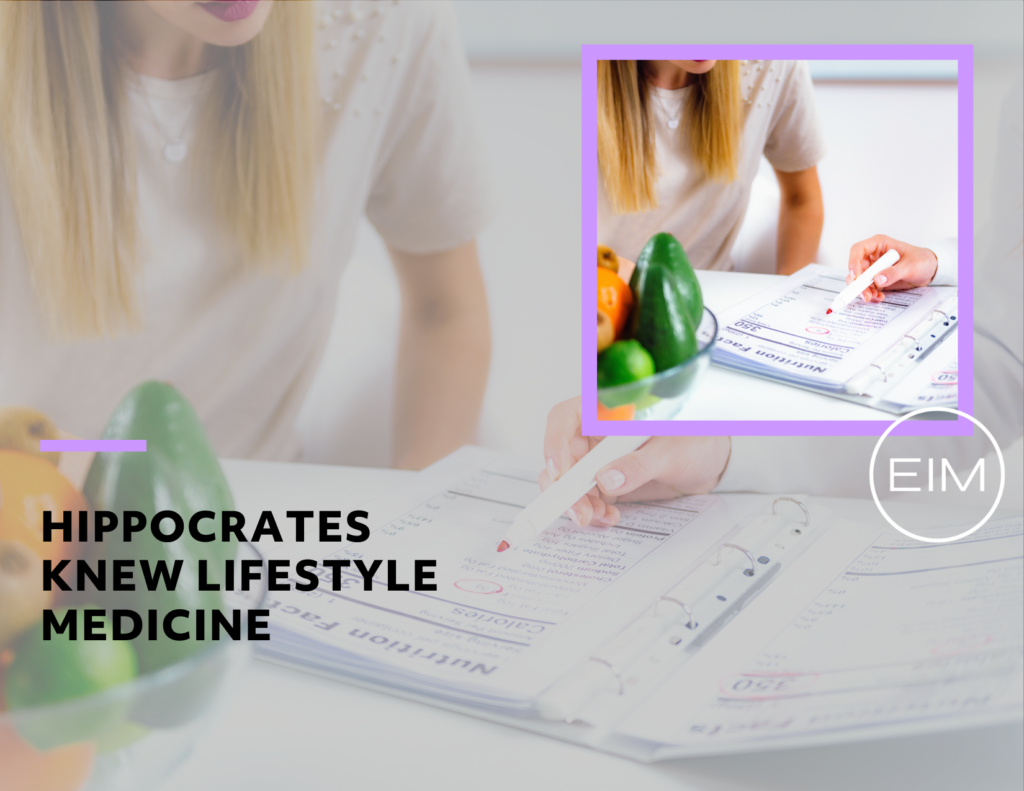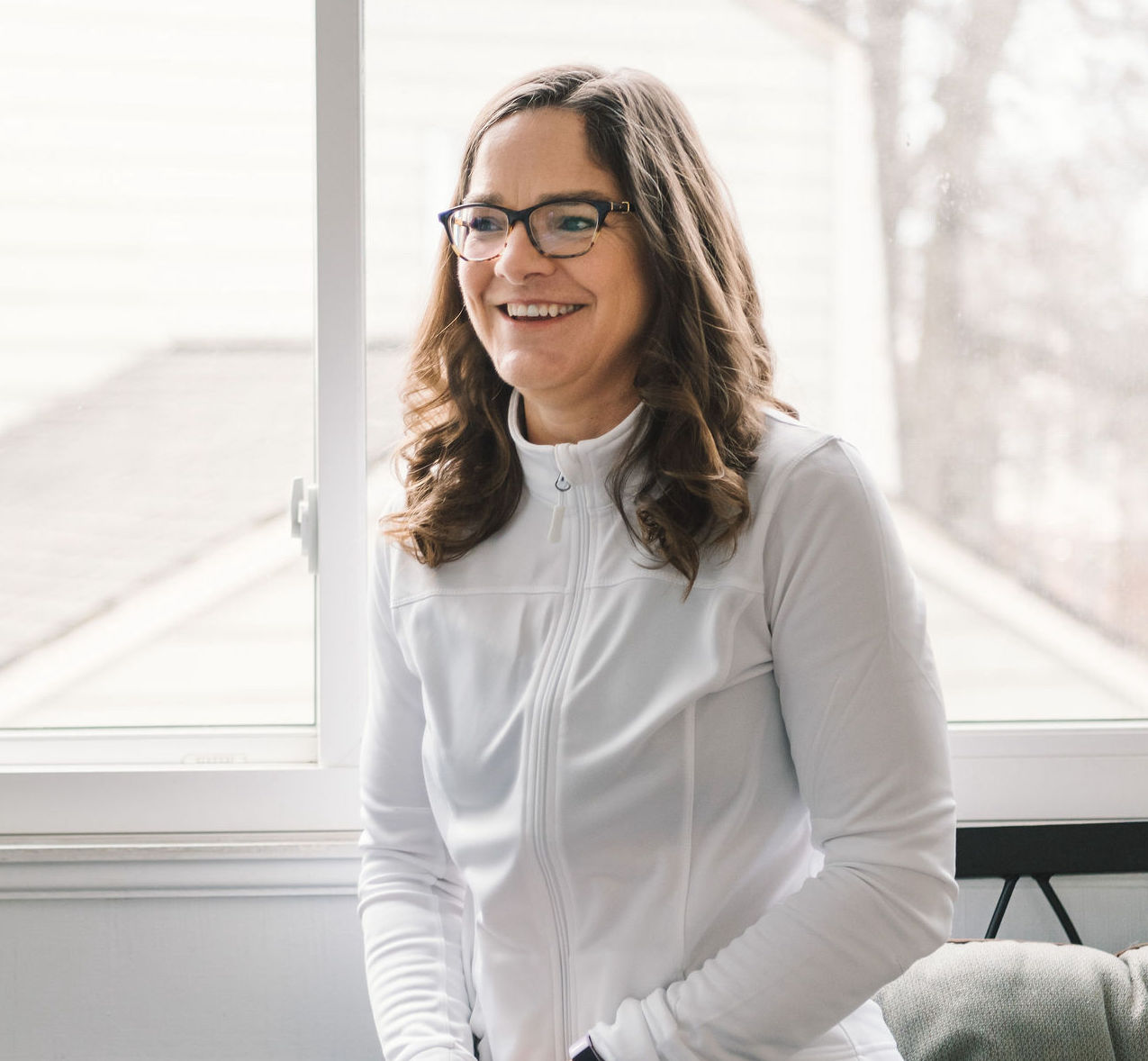
Lifestyle Medicine is a foundational piece of conventional medicine. If you look at professional clinical practice guidelines, most support the use of Lifestyle Medicine (LM) as the first line of treatment. However, this is not what we see being practiced in our communities.There are six main gears within Lifestyle Medicine: sleep, exercise, nutrition, stress, risky substances and social connectedness. They are all interconnected and very much tied into the pillars of Pain Neuroscience Education (PNE).
Lifestyle related diseases (LRD) are not unique to the United States. It is estimated that 71% of the global burden of disease is due to shared risk factors among virtually all developed and modernizing countries.
The definition from the American College of Lifestyle Medicine is as follows: “Lifestyle Medicine is the use of evidence-based lifestyle therapeutic intervention…as a primary modality, delivered by clinicians trained and certified in the specialty, to prevent, treat, and often reverse chronic disease.”
Lifestyle Medicine is not a new concept.
Lifestyle Medicine is not new! Only the term is relatively new. In fact, the practice has been around for thousands of years. Here are a few ancient and powerful quotes from Hippocrates and a couple other ancient philosophers supporting Lifestyle Medicine and a brief modern application.
“Before you heal someone ask him if he’s willing to give up the things that make him sick.” – Hippocrates (460-370 B.C.)
Application: Behavior change is hard. Understanding where a client is in their desire to make a change will influence your sessions. How willing are they to do an HEP? How motivated are they to remove a nightly glass of scotch? Why bother to stop scrolling social media while in bed? Here we integrate James Prochaska’s Transtheoretical Model of Behavior Change. If we understand and take the time to know where our client is, we can more efficiently assist them in their change process. Also key to this is Motivational Interviewing, developed by Miller and Rollnick. A meta-analysis from 2005 tells us Motivational interviewing out performs advice giving in 80% of the studies addressed in the meta-analysis. It is a style of communication that is collaborative and goal-oriented with a particular attention to the language of change.
“Without exercise, a good diet alone is not sufficient and eventually medical treatment will be needed.” – Hippocrates
Application: There are multiple pieces to consider for every one of our clients and everyone’s situation is unique. Research tells us PNE is more effective when combined with exercise. And we can also consider the PNE + program! We have 20 + non pharmacological ways to assist our clients with pain experiences. There are no magic bullets.
Certification in Lifestyle Medicine
Interested in learning more about how to help your patients move toward a healthier life?
- Learn more about the Certification in Lifestyle Medicine, brought to you in partnership with Purdue University
- Meet with Admissions
“I drank what???” – Socrates (469-399 B.C.)
Application: Avoiding risky substances is an LM gear. The US has a problem with both binge drinking and heavy drinking. More concerning is a trend called High Intensity Drinking, defined as consuming 2-3x or more alcohol of one’s gender-specific binge drinking threshold. This is a form of maladaptive coping. Lifestyle Medicine can empower our clients with healthy and productive coping.
“If you are depressed, you are living in the past. If you are anxious, you are living in the future. If you are at peace, you are living in the present.” – Lao Tzu (600 B.C.)
Application: It’s hard to escape mindfulness in the news and social media. It is linked to improving multiple areas of physical and mental health. An easy way to start today is what I refer to as “One Minute Me”. What can you be mindful of and give to yourself for one minute today? How about savoring your coffee without your phone, taking in the sounds of morning. Or consider 60 seconds of jumping jacks to get your heart rate up (bonus- blood flow calms nerves and the pain experience!). A red light is a great place to try 7-11 breathing (7 second inhale followed by an 11 second exhale). The prolonged exhale can help calm our nervous system.
“Let food be thy medicine and medicine be thy food.” – Hippocrates
Application: Nutrition is one of the 6 LM gears. Evidence suggests eating real food as close to nature as possible maximizes the health benefits of food.
“Walking is man’s best medicine.” – Hippocrates
Application: Exercise is an LM gear and PNE pillar. And no side effects!
“The natural healing force within each of us is the greatest force in getting well.” – Hippocrates
Application: This is self-efficacy, a concept developed by psychologist Albert Bandura. Self-efficacy is the belief in your own ability to perform a task. Quite simply, it is the belief that “I can!”
“If we could give every individual the right amount of nourishment and exercise, not too little and not too much, we would have found the safest way to health.” – Hippocrates
Application: Nutrition and exercise are both LM gears. Exercise is also an important part of PNE. Pacing and finding the right “dose” for your client is an important consideration for both LM and PNE.
“Cure sometimes, treat often and comfort always.” – Hippocrates
Application: Our ability to be compassionate and create a relationship with our clients can be as important as our clinical skills. Creating a relationship with your clients establishes the Therapeutic Alliance needed to build trust and better treat your clients.
“In whatever disease sleep is laborious, it is a deadly symptom; but if sleep does good, it is not deadly.” – Hippocrates
Application: Sleep is a focus in LM and PNE. Sleep and pain have a bidirectional relationship. It is also bidirectional with stress and exercise. Sleep is a necessity of health, not a luxury.
Curious about Lifestyle Medicine?
Email me and I’d love to tell you more.
You can also learn more about the Certification in Lifestyle Medicine and the tools you will be given to help your clients utilize the six gears of lifestyle medicine in their lives.
References:
“Albert Bandura: Self-Efficacy for Agentic Positive Psychology.” PositivePsychology.com, 22 Mar. 2021, https://positivepsychology.com/bandura-self-efficacy/.
“Alcohol Facts and Statistics.” National Institute on Alcohol Abuse and Alcoholism , U.S. Department of Health and Human Services, https://www.niaaa.nih.gov/publications/brochures-and-fact-sheets/alcohol-facts-and-statistics.
Katz DL, Frates EP, Bonnet JP, Gupta SK, Vartiainen E, Carmona RH. Lifestyle as Medicine: The Case for a True Health Initiative. Am J Health Promot. 2018;32(6):1452-1458. doi:10.1177/0890117117705949
Lianov LS, Fredrickson BL, Barron C, Krishnaswami J, Wallace A. Positive Psychology in Lifestyle Medicine and Health Care: Strategies for Implementation. Am J Lifestyle Med. 2019;13(5):480-486. Published 2019 Apr 18. doi:10.1177/1559827619838992
Miller, W. and Rollnick, S., 2012. Motivational interviewing: Helping People Change. 3rd ed. New York, NY: Guilford Press.
Paulo H. Ferreira, Manuela L. Ferreira, Christopher G. Maher, Kathryn M. Refshauge, Jane Latimer, Roger D. Adams, The Therapeutic Alliance Between Clinicians and Patients Predicts Outcome in Chronic Low Back Pain, Physical Therapy, Volume 93, Issue 4, 1 April 2013, Pages 470–478, https://doi.org/10.2522/ptj.2012013
Prochaska JO, Velicer WF. The transtheoretical model of health behavior change. Am J Health Promot. 1997;12(1):38-48. doi:10.4278/0890-1171-12.1.38
Rubak S, Sandbaek A, Lauritzen T, Christensen B. Motivational interviewing: a systematic review and meta-analysis. Br J Gen Pract. 2005 Apr;55(513):305-12. PMID: 15826439; PMCID: PMC1463134.
Shammas MA. Telomeres, lifestyle, cancer, and aging. Curr Opin Clin Nutr Metab Care. 2011;14(1):28-34. doi:10.1097/MCO.0b013e32834121b1
“Understanding Motivational Interviewing.” Understanding Motivational Interviewing | Motivational Interviewing Network of Trainers (MINT), https://motivationalinterviewing.org/understanding-motivational-interviewing.
Request More Information
